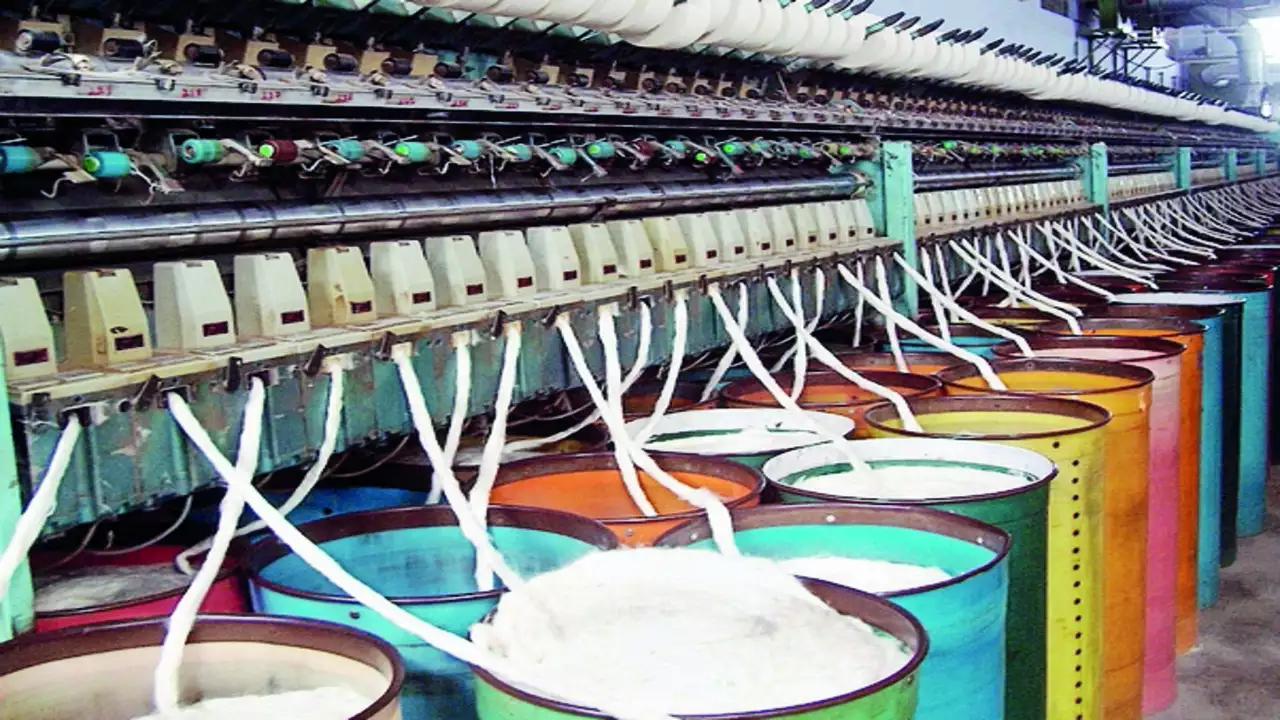In a bold move, open-end spinning mills across the state have halted yarn production as an act of protest, calling upon the central and state governments to address their grievances. The mills have demanded a decrease in raw material prices along with a reduction in power tariffs. Unfortunately, this production strike has left approximately 2 lakh workers unemployed, with this situation likely to persist until the end of the month. Moreover, the mills are currently facing a staggering daily loss of 60 crore.
The open-end spinning mills sector primarily focuses on fabricating household textiles such as towels, floormats, and bedsheets. These mills have appealed to the central government to forbid waste cotton export, which constitutes their primary raw material. Additionally, they have urged the state government to reduce electricity rates. The mills highlighted that waste cotton prices have skyrocketed from 97/kg to 117/kg within mere months. Despite growing demand in the domestic market, cotton export continues unhindered, while the mills face an 11% import tax on waste cotton.
Addressing issues concerning the state government, the mills have demanded the abolition of peak-hour power charges. They implored the government not to levy “Fixed Demand Charges” during periods of non-operation.
The open-end spinning mills have been experiencing a challenging period for over a year, leading to a substantial financial burden. G Arulmozhi, President of the Open-End Spinning Mills Association (OSMA), highlighted that many mills are struggling to repay loans and sustain production.
Despite numerous appeals to key officials, including the Union Minister of Textiles, Piyush Goyal, and former and current state electricity ministers, V Senthil Balaji and S Muthusamy, the mills’ grievances have remained unaddressed, exacerbating the situation further.
Expressing disappointment, AIADMK General Secretary Edappadi K Palaniswami emphasized the adverse impact of the mills’ strike during the festive season. He called upon the current government to reconsider the significant increase in electricity tariffs and urged representatives from the spinning mills associations to participate in a meeting to find a resolution.
Meanwhile, AMMK Chief TTV Dhinakaran called on the state government to address the concerns of micro, small, and medium enterprises (MSMEs) across Tamil Nadu. Dhinakaran voiced his anguish over the power tariff hike, highlighting the potential paralysis of MSMEs already grappling with the aftermath of the pandemic, including economic slowdown, surging raw material costs, and labour shortages.
Given the severity of the situation, the spinning mills’ demands, if left unmet, could have a lasting impact on the textile industry in the state. It is essential for the government to acknowledge and address these concerns to ensure the continued growth and success of this crucial sector.

